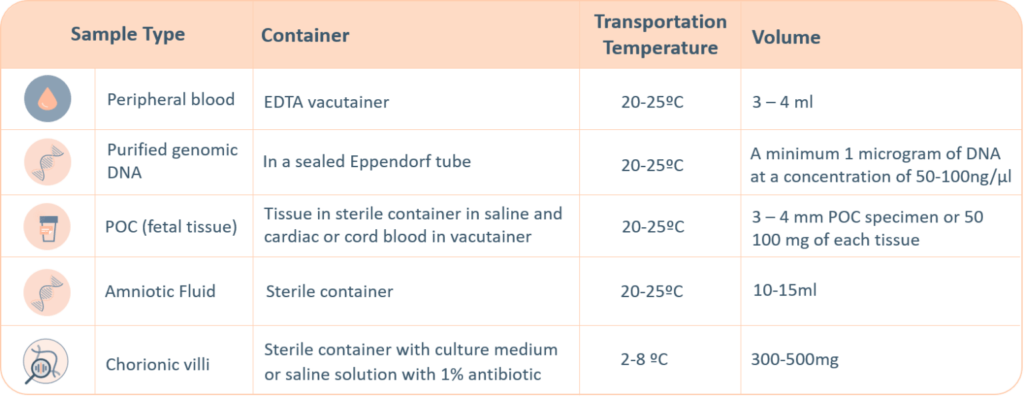Repeat expansion analysis can be requested for:
- Diagnosis of a patient suspected to have a genetic disorder that could be caused by a repeat expansion mutation.
- Carrier status for repeat expansions associated to autosomal recessive or X linked diseases.
- Presymptomatic diagnosis of at risk relatives with late onset diseases caused by repeat expansion mutation.
Some of the most common genetic disorders detected by Expansion repeat testing include:
- Fragile X syndrome and related conditions
- Friedreich Ataxia
- Huntington disease
- Myotonic dystrophy types 1 and 2
- Spinocerebellar ataxias







